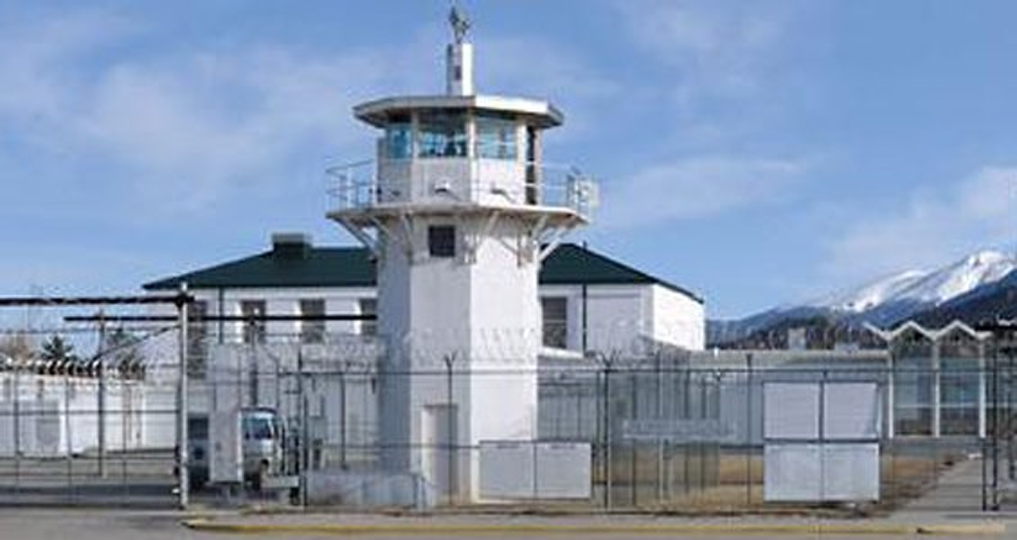Colorado State Public Health Laboratory has detected 3 cases of the B.1.351 variant in Colorado.
This variant was first identified in South Africa. This is the first detection of B.1.351 in Colorado, but to date 68 cases have been identified across 17 jurisdictions in the U.S. The 3 cases — 2 among staff and one person who is incarcerated — are at the Colorado Department of Corrections Buena Vista Correctional Complex (BVCC). These samples were chosen at random for sequencing as part of ongoing variant surveillance analysis.
The Colorado Department of Public Health and Environment Laboratory will sequence all positive specimens from this facility to look for variants. CDPHE has notified CDC that Colorado has detected B.1.351. All exposed persons at BVCC will be required to complete a 14-day quarantine. CDPHE is actively investigating an outbreak at this facility.
Given that BVCC had a current outbreak, inmates were tested weekly from October 19 to February 3. Beginning on February 22, the facility began weekly testing again for the incarcerated population and has been continuing the weekly testing since that time.
Testing has been one of the most important tools for the Department of Corrections during the course of this pandemic. The Department began doing broader PCR testing in April of 2020 at the start of the pandemic, and staff members are still tested weekly using the PCR test. All DOC staff who work in a facility have been screened daily using the BinaxNOW COVID-19 rapid antigen test since early November of 2020.
Inmates have also been regularly tested throughout the course of the pandemic using the PCR test when an inmate demonstrates symptoms, is exposed to someone who has tested positive, and during the course of surveillance testing when an outbreak occurs. More than 175,000 PCR tests for the inmate population have been conducted to date. The results of those tests have allowed CDOC to properly cohort, quarantine and monitor inmates in an effort to mitigate the spread of the virus. Given the regular and robust testing protocols in place, CDOC has been able to quickly catch positive cases, including asymptomatic cases.
To mitigate the current outbreak, a CDPHE testing team will be at the facility tomorrow to perform PCR testing and to host a vaccine clinic for staff and inmates at the facility. Later this week, CDPHE will also host a vaccination clinic for family members and close contacts of staff. This is in line with a policy CDPHE communicated to local public health agencies on January 29 that stated, “Local Public health has additional flexibility to vary from the prioritization for sub-populations with the vaccine supply allocated to them for emerging risk of rapid spread of COVID-19 (e.g.variant transmission), as identified by local public in consultation with CDPHE.” CDOC is also in line with the state plan regarding vaccinations and has vaccinated 2,587 staff members and 664 inmates so far.
CDPHE is working closely with Chaffee County Public Health to investigate this outbreak and provide additional community testing in Chaffee county.
Multiple COVID-19 variants are circulating around the world. Originally detected in early October 2020 in South Africa, B.1.351 is a variant of concern because it spreads more easily and quickly than other variants, and vaccines may be less effective against this variant.
The Centers for Disease Control and Prevention (CDC) describes a variant of concern as one that spreads more easily, causes more severe disease, reduces the effectiveness of treatments or vaccines, or is harder to detect using current tests.
Everyone should continue to wear masks, practice physical distancing, wash their hands frequently, and get vaccinated when it is their turn. These are our best tools for preventing the spread of this virus, no matter the strain. Early research suggests that the currently authorized vaccines are effective against known variants, though perhaps to varying degrees depending on the strain. Experts stress that getting vaccinated can provide significant protection against severe illness from COVID-19.
In coordination with CDPHE, the CDOC has taken numerous steps to prevent and mitigate the spread of the virus since the beginning of the pandemic, including:
- Conducting large scale targeted testing programs for staff and inmates and utilizing the inmate test results to create cohort groups that help prevent any potential cross contamination or exposure between inmates in different living units.
- To the greatest extent possible, staff have been assigned to specific areas of the facility to prevent cross contamination.
- To reduce the risk of introducing and spreading COVID-19, CDOC staff members who work in prison facilities or parole offices and all inmates are required to wear masks in accordance with the Center for Disease Control’s guidance. Inmates and staff members have been required to wear masks since April of 2020. To add another layer of protection, all staff are being provided and are wearing KN95 masks. Inmates are being provided with masks that are laundered regularly and the department has a stock of replacement masks available to replace inmate masks as they wear out. Inmates can speak with a staff member about getting a replacement mask if it is needed. Additional personal protective equipment is provided to both staff and inmates as needed.
- The CDOC contracted with additional clinical staff and has had 24/7 emergency medical response teams at some facilities during critical phases of an outbreak. This allows for quick hospital transport when/if needed.
- CDOC limited any unnecessary transport of inmates between facilities for many months, and has only recently begun interfacility transfers following testing and quarantining protocols.
- The CDOC moved the intake facility from Denver to Canon City which allowed for the use of a facility with a better physical layout/design to quarantine inmates and prevent the spread of the virus. This decision also prevented the CDOC from bringing inmates from the county jails into the Denver facility where higher health risk inmates are housed.
- All inmates that arrive at DOC are quarantined at the intake facility. They are PCR tested at day 2 and day 9. Two negative tests, plus a fourteen day quarantine, allows the offender to move into Denver Reception and Diagnostic Center and to their destination facility.
- CDOC suspended jail intake for a length of time in order to develop robust protocols/requirements for the county jails prior to allowing for very limited intake.
- While it was a difficult decision, the CDOC suspended in-person visiting and volunteers in order to prevent any unnecessary outside people from potentially bringing the virus into the facility. Facilities worked to find creative ways to safely engage inmates in programming and education, including conducting virtual and correspondence classes.
- All facilities and offices implemented staff screening protocols and taking the temperatures of staff members when they come into facilities.
- All facilities and offices increased the already robust cleaning protocols and provided additional cleaning supplies to the inmate population.
- DOC also conducts virtual and in-person audits for all our COVID protocols. We audit cleaning, disinfecting, and cohorting practices, as well as treatment practices
Continue to stay up to date by visiting covid19.colorado.gov. All detected variants in Colorado are listed on the data dashboard and the CDC has a webpage dedicated to COVID-19 variants.




